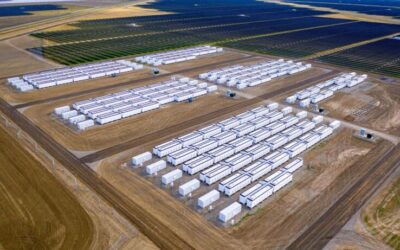
A dedicated energy storage investment division has been launched by Foss & Company, an investment and investment services firm which specialises in tax credit transactions, with US$3 billion targeted by 2028.
The company announced the launch of its Standalone Battery Storage Investment Division yesterday (13 September). Although it didn’t specify, the company is based in the US and standalone energy storage in the country is now eligible for the investment tax credit (ITC), which before the Inflation Reduction Act only applied to power plants with generation.
The firm has already completed a US$200 million investment in a 300MW/600MWh battery energy storage system (BESS) project in an undisclosed location. The size and duration could potentially suggest it is in the ERCOT, Texas market, Energy-Storage.news notes.
The company said the project is its largest investment into a single asset to-date.
Try Premium for just $1
- Full premium access for the first month at only $1
- Converts to an annual rate after 30 days unless cancelled
- Cancel anytime during the trial period
Premium Benefits
- Expert industry analysis and interviews
- Digital access to PV Tech Power journal
- Exclusive event discounts
Or get the full Premium subscription right away
Or continue reading this article for free
Foss & Company has set itself the goal of deploying US$3 billion in tax equity into battery storage projects by 2028.
Bryen Alperin, partner & managing director, Foss & Company. “We have built a reputation for being entrepreneurial and leading the way into new tax credit markets as they come online. Our Standalone Battery Storage Investment Division will bring institutional tax equity to this new and rapidly growing market sector.”
As Energy-Storage.news has written extensively, the ITC’s application for standalone energy storage has been relatively slow to take off this year. This is partially down to it being a new asset class for tax equity investment, a form of investment which has typically only been done by specialised companies due to its higher complexity than conventional equity investment.
Tax equity investors also tend to have more risk-averse profiles, making the lack of contracted revenues for battery storage – compared to solar or wind – an issue.
Many sources have told Energy-Storage.news that the tax equity community will nonetheless become more comfortable with energy storage over time, but that it would be a long process.
“We stand on the shoulders of our rich history, a legacy that solidifies Foss & Company’s unparalleled proficiency in tax equity,” said George Barry, president & CEO, Foss & Company.
Our publisher Solar Media is hosting the 10th Solar and Storage Finance USA conference, 7-8 November 2023 at the New Yorker Hotel, New York. Topics ranging from the Inflation Reduction Act to optimising asset revenues, the financing landscape in 2023 and much more will be discussed. See the official site for more details.





